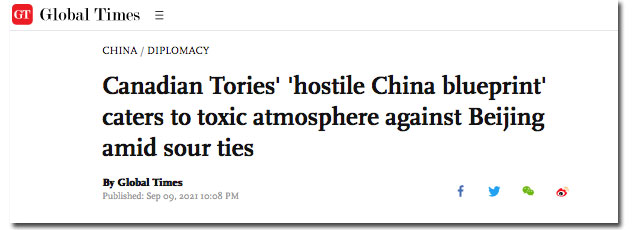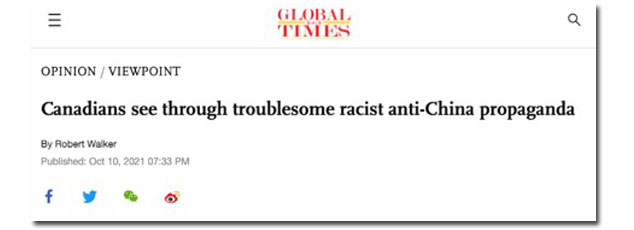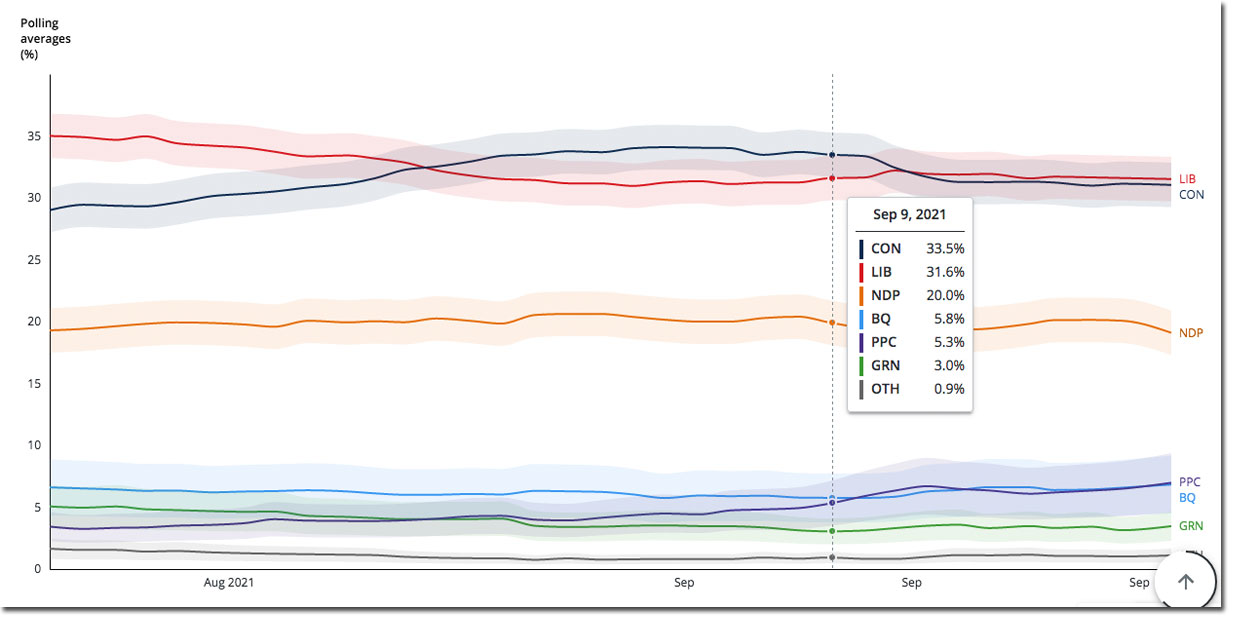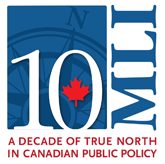Marcus Kolga and Ai-Men Lau
As DisinfoWatch reported in September 2021 during the fall Canadian federal election, our team observed Chinese government media and pro-Beijing actors publishing and promoting disinformation narratives on various platforms, including Global Times, WeChat, and local Canadian-Chinese websites. After analysing available open-source data and consulting with key stakeholders, we believe that the timing and content of narratives indicate the likelihood of a coordinated influence operation targeting Chinese-Canadian voters.
In its July 2021 report on Foreign Interference Threats to Canada’s Democracy, the Canadian Security Intelligence Service (CSIS) warned that Canada’s “elections provide valuable opportunities for state actors to conduct disinformation and interference campaigns.” The report noted “the targeting and manipulation of diverse Canadian communities are one of the primary means through which states carry out foreign interference activities and undermine Canada’s democracy.” Such malign foreign influence and information operations “constitute a threat to the safety of Canadians and to Canada’s security.”
The Chinese government has repeatedly demonstrated its readiness to advance its interest in Canada by directly manipulating Canadian political debate and policy through the use of disinformation, threats, intimidation, and influence operations directed at Canadian diaspora groups. Such interference threatens to undermine the integrity of Canadian democracy and erode public trust in our democratic processes and institutions.
On September 9, 2021, Chinese Communist Party (CCP) owned tabloid, Global Times, published an article attacking the Conservative Party’s foreign policy platform, particularly policies related to CCP. The article warned Canadians that if they elected a Conservative government, Canadians should expect “a strong counter strike and Canada will be the one to suffer.” While few Canadians read this Chinese government propaganda outlet, it allows the Chinese government to set the tone for domestic Canadian platforms and actors that actively support far-left and far-right illiberalism and authoritarians, and which amplify, recycle and launder their propaganda and disinformation domestically.

Shortly after the Global Times piece was published, a post appeared on Chinese social media platform WeChat that contained disinformation targeting the incumbent Conservative candidate, Kenny Chiu, in the riding of Steveston—Richmond East, south of Vancouver. The piece was also published on a popular Chinese-Canadian website.
In April 2021, Chiu introduced a private members bill to create a Canadian foreign agents registry – modelled on Australian legislation – that would force individuals and groups acting on behalf of a foreign government to register themselves with the federal government. An anonymous article posted on the Chinese version of WeChat, Weixin, on September 8, 2021, accused Chiu of seeking to “suppress the Chinese community” through his private member’s bill. The anonymous article claims that all individuals or groups connected to China may be considered as acting on behalf of the Chinese government and may have to register if the bill passes.
The article goes on to say that after registration, Chinese mainland associations and Sino-Canadian activities such as economic, cultural and technological exchanges may be suppressed. The article alleges that the bill may curb freedom of speech in the Chinese community.
The article greatly distorts Chiu’s bill and what the proposed legislation aims to achieve. The proposed legislation would only require individuals and organizations whose activities are being directed or controlled by an identified foreign state to register. The bill itself takes an ethno-agnostic approach, in which the bill would be equally applied to all regardless of ethnicity. Moreover, the punishments outlined in the bill are for those who fail to file a return of the required information or make a false or misleading statement.
The objective of this false narrative was to incite fear and anger towards the candidate and the Conservative Party in targeted communities. The ultimate impact of these and other influence operations targeting the Conservatives is difficult to measure, though voter influence and conversion remains the likely goal.
Modes of Attack
Taiwan is a primary target of Beijing’s foreign information warfare operations and has over the past decade developed resources and policies to identify, monitor, and defend the country’s democracy and society against them. The People’s Republic of China’s (PRC) efforts to undermine the January 2020 presidential elections in Taiwan were analysed in an October 2020 report published by Taiwan’s leading disinformation analysis NGO, Doublethink Lab. The report focused on multiple information attack methods, including low-level disinformation disseminated on private chat platforms and the official Chinese government-controlled platform, WeChat.
WeChat is a Chinese government controlled social media platform that combines Facebook, private messaging and payment solutions into one “super-app.” With just under 1.25 billion users, WeChat is the third most popular social media platform in the world. While Facebook, Twitter and other large social media apps are banned in China, it has been reported that Chinese-Canadians do use these Western apps. However, WeChat has consistently remained one of the preferred social media platforms in these communities. One million Canadians reportedly use WeChat, which means that content shared on the platform has the potential to reach a large audience.

Screenshot of disinformation targeting Kenny Chiu regarding his private members bill to create a Canadian foreign agents registry.
The narratives published on WeChat in September 2021, targeting the Conservative Party and Kenny Chiu, fits into the PRC disinformation attack modes identified by Doublethink. While state media were used to directly attack the Conservative Party leadership and platform, certainly on the orders of government leadership, narratives that targeted specific candidates appear to have been less organized and more-bottom up. This attack method has been identified by Doublethink as the “Pink Attack Mode,” whereby pro-Beijing “netizens” in China and Canada may be voluntarily disseminating propaganda and disinformation. Local pro-Beijing “netizens” may be drawn in as collaborators in PRC information operations by spreading and amplifying disinformation narratives that support the Chinese government’s interests.
A recent report published by the Atlantic Council’s DFRLab identifies an organization named HuayiNet as a “principal actor behind the Canadian election case.” According to the report, HuayiNet offers translation services and works very closely with China’s consulates and groups linked to the United Front Work Department, a Chinese government external propaganda organization that is active in Canada. One WeChat account associated with HuayiNet is named torontolingshiguan, (Toronto Consulate in Chinese). The account is not directly associated with the Chinese government account, but may give WeChat users the false impression that it is. The torontolingshiguan account re-posted the disinformation article targeting Kenny Chiu on September 10, one day after it was posted to WeChat.
Motivation
Disinformation targeting the Conservative Party and Kenny Chiu, published on WeChat during the 2021 Canadian federal election, fits into the PRC attack modes categories identified by Doublethink.
The Conservative Party’s foreign policy election platform included proposals to hold Chinese government officials accountable for human rights violations and to counter the growing authoritarian challenge posed by the CCP. The platform included sanctions, diversifying trade away from China, banning Huawei from Canada’s telecom infrastructure, removing Chinese state media from Canada’s cable networks and the creation of a foreign agent registry. The Conservative proposal would have required “individuals and companies acting as agents of designated foreign principals (country, corporation, entity or individual) in a political or quasi-political capacity including lobbying, policy development, advertising, and grassroots mobilization.” While less detailed than the Conservative platform, the New Democratic Party (NDP) also proposed to “call out human rights abuses by China, stand with Hong Kong pro-democracy asylum seekers, and provide coordinated support for those facing threats by Chinese entities here in Canada.”
 When faced with criticism from governments, media, or activists abroad, the Chinese government often deploys tactical counter-narratives that aim to discredit and undermine them. When Michael Spavor and Michael Kovrig were arbitrarily detained in December 2018, the Chinese ambassador in Ottawa blamed the Canadian government of “white supremacy” when Canada called for their release. Global Times has consistently labelled any Canadian criticism of China’s policies, including mass human rights abuses in Xinjiang, Tibet, Hong Kong, and mainland China, as “anti-China” or “racist.”
When faced with criticism from governments, media, or activists abroad, the Chinese government often deploys tactical counter-narratives that aim to discredit and undermine them. When Michael Spavor and Michael Kovrig were arbitrarily detained in December 2018, the Chinese ambassador in Ottawa blamed the Canadian government of “white supremacy” when Canada called for their release. Global Times has consistently labelled any Canadian criticism of China’s policies, including mass human rights abuses in Xinjiang, Tibet, Hong Kong, and mainland China, as “anti-China” or “racist.”
Timing
When Justin Trudeau called the federal election on August 15, the Liberal Party polled at approximately 35 percent and was projected to win at least a strong minority if not a majority government on election day (September 20). By the end of August, support for the Liberal Party fell to around 32 percent, matching the rise of Conservative Party popularity to the same level. In the first week of September, the Conservatives led in the national polls with approximately 35 percent support. In British Columbia, the Conservatives led polls from August 23 onward and maintained that lead until election day.
The Chinese government’s September 9 Global Times article attacking the Conservative Party and its leader Erin O’Toole was likely published as a reaction to the Conservative surge in the polls at this time. Similarly, disinformation posted on WeChat and other platforms about the Conservative’s “anti-Chinese” platform and Kenny Chiu’s foreign agent registry legislation also correspond to this timeline.
Impact
The impact of narratives broadcast by Chinese state media and anonymously published social media posts is difficult to measure on the 2021 federal election.
While the Liberals led in Steveston-Richmond East at the start of the election campaign, polling aggregator 338canada.com predicted a Conservative win, based on polling data, throughout most of September. Their projection that Conservative Kenny Chiu would win was incorrect by a nearly 10 percent margin. It should be noted that while these polling results suggest a dramatic swing, it does not rule out that polling may simply be inaccurate. However, the gap between polling and election results is unusual due to how rapidly the swing between a Conservative to Liberal candidate occurred.
One Canadian analyst, Karamveer Lahl, has suggested that Conservative losses in ridings with large numbers of ethnic Chinese voters was simply due to the fact that the Conservatives had simply failed to connect with voters in those communities. Polls taken in Chinese communities by Mainstreet Research during the election indicated stronger support for the Liberals but did not explain why. One factor that has been cited is the rise in anti-Asian hate and sentiment in Western countries including Canada. The Conservative platform placed considerable focus on holding the Chinese government and its agents to account. The platform and the Conservative Party were characterized by Chinese propaganda outlets, like Global Times, as contributing to a “toxic anti-China atmosphere.,”
Chinese communities and more broadly, East and Southeast Asian communities, in Canada have indeed faced a sharp rise in anti-Asian sentiment and hate crimes linked to the COVID-19 pandemic. It is imperative for Canadian politicians to acknowledge and address the rise in anti-Asian sentiment and the challenge it poses to national security for Canadians.
However, this challenge is complicated by CCP narratives that have capitalized on this rise in anti-Asian sentiment, blurring the lines between racism experienced by the diaspora and legitimate criticism of the Chinese government. It is equally important for the Canadian government to recognize the distinction and in the case of the 2021 federal election, potential interference by the Chinese government should be of concern.
While we currently lack data that would allow us to measure the impact of pro-Beijing disinformation on the 2021 election outcome, that same absence of data precludes us from dismissing its impact. In any event, the presence of what appears to be a coordinated information operation should be of real concern to Canadian election officials and deserves a full investigation.
The COVID-19 pandemic has unmasked the threat and challenges disinformation poses to democracies. As the Canadian government looks to address disinformation, what is missing from the conversation is the role of third language media in circulating disinformation and misinformation in diaspora communities. This is not a phenomenon that is siloed to Chinese language media or platforms. In the United States, it was reported that Spanish language media was disseminating medical disinformation related to COVID-19. Pro-Kremlin actors publish and amplify anti-vaccination and anti-lockdown narratives to Canadian Russian-speaking Facebook users.
The Canadian government should examine third-language media in Canada, how disinformation and misinformation is circulated on these platforms and the geopolitical considerations that may play a factor. Understanding of operations and facets of third-language media remain consistently poor.



